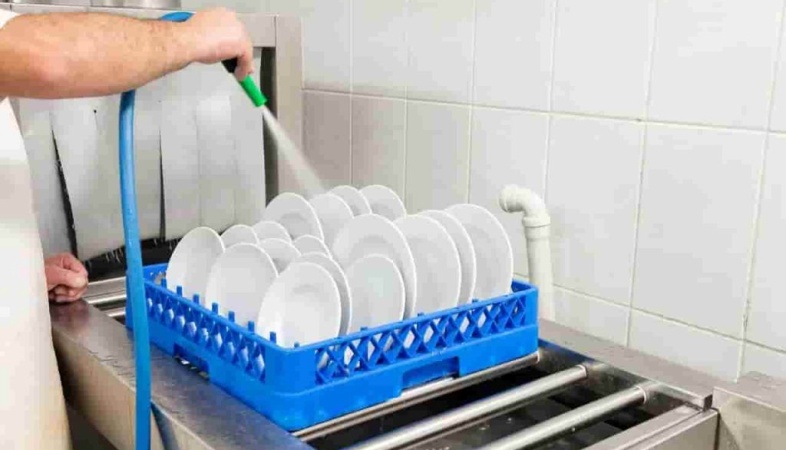Optimizing Dishwashing Efficiency: Expert Techniques for Commercial Kitchen Hygiene
Efficient and effective dishwashing is essential for maintaining cleanliness and hygiene in commercial kitchens.

In the bustling environment of a commercial kitchen, efficient and effective dishwashing is essential for maintaining cleanliness, hygiene, and productivity. Whether it's a busy restaurant, a bustling hotel kitchen, or a catering service, proper dishwashing practices ensure that dishes, utensils, and equipment are thoroughly cleaned and sanitized, ready for the next use. In this article, we'll explore the dos and don'ts of dishwashing in commercial kitchens, highlighting best practices for optimizing efficiency and achieving optimal cleanliness.
Dishwashing Dos:
1. Pre-Scrape and Pre-Rinse: Before loading dishes into the dishwasher, it's important to pre-scrape any leftover food particles and pre-rinse them to remove excess debris. This helps prevent clogs and ensures that dishes come out clean and sparkling after the wash cycle.
2. Use the Right Detergent: Selecting the appropriate detergent is crucial for achieving optimal cleaning results. Choose a high-quality commercial detergent that is specifically formulated for use in dishwashers and follow the manufacturer's instructions for proper dosing.
3. Load Dishwasher Correctly: Proper loading of the dishwasher is essential for maximizing cleaning efficiency and preventing breakage. Place dishes, utensils, and glassware in the designated racks with sufficient space between items to allow water and detergent to circulate freely.
4. Follow Recommended Wash Cycle: Different types of dishes may require different wash cycles, so it's important to select the appropriate cycle based on the level of soil and the type of dishware being washed. Follow the manufacturer's recommendations for water temperature, wash time, and rinse aid usage to achieve optimal results.
5. Monitor Wash Temperature: Ensure that the dishwasher is operating at the correct temperature for effective cleaning and sanitization. The wash temperature should be between 140°F and 160°F (60°C to 71°C) to effectively remove grease and food residue and kill harmful bacteria.
Dishwashing Don'ts:
1. Overload the Dishwasher: Avoid overloading the dishwasher with too many dishes, as this can prevent proper water and detergent distribution and result in ineffective cleaning. Instead, load the dishwasher in batches to ensure thorough cleaning and prevent breakage.
2. Use Excessive Detergent: Using too much detergent can lead to excessive sudsing and poor cleaning results. Follow the manufacturer's recommended dosage instructions and avoid overfilling the detergent dispenser.
3. Mix Stainless Steel and Silverware: Avoid washing stainless steel and silverware together in the same dishwasher load, as this can cause a chemical reaction that tarnishes the silverware. Instead, separate stainless steel and silverware into different loads to prevent discoloration and maintain the integrity of the silverware.
4. Skip Maintenance Tasks: Regular maintenance is essential for keeping the dishwasher in optimal working condition. Don't skip routine maintenance tasks such as cleaning filters, unclogging spray arms, and descaling the dishwasher to prevent buildup of debris and mineral deposits.
5. Neglect Safety Precautions: Dishwashing equipment can pose safety hazards if not used properly. Don't neglect safety precautions such as wearing protective gloves, avoiding reaching into the dishwasher during operation, and following proper procedures for handling chemicals and hot water.
Efficient and effective dishwashing is essential for maintaining cleanliness and hygiene in commercial kitchens. By following best practices such as pre-scraping and pre-rinsing dishes, using the right detergent, loading the dishwasher correctly, monitoring wash temperature, and avoiding common pitfalls, kitchen staff can ensure that dishes come out clean and sanitized, ready for service.
.png)





.jpg)






 at JLL India.jpeg)
















